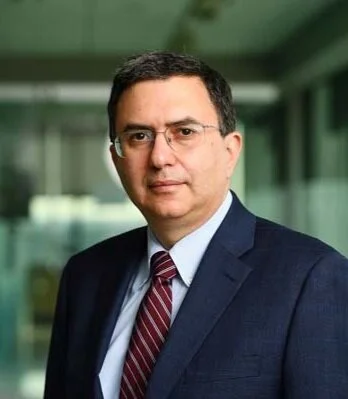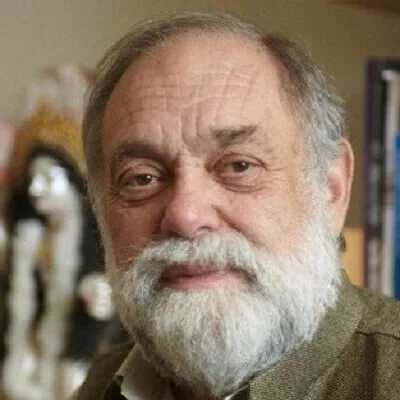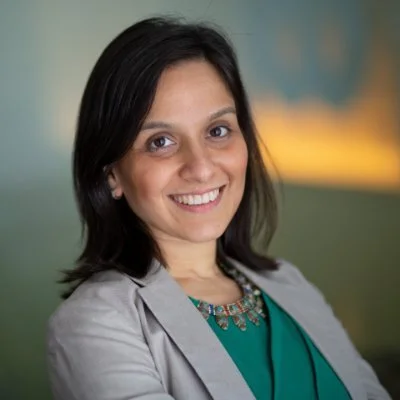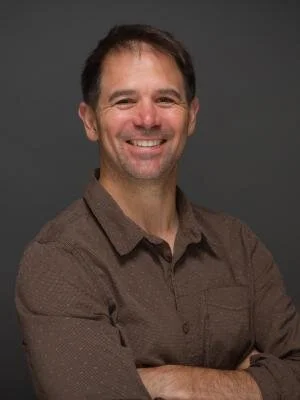Featured Speakers of The 2021 GHLC at JHU
PETER AGRE, MD
Nobel Laureate (2003); Bloomberg Distinguished Professor at The Johns Hopkins Bloomberg School of Public Health; Director of the Johns Hopkins University Malaria Research Institute
Dr. Agre began his research career as a medical student interested in global health. As an independent investigator, his group isolated the core subunit of the Rhesus blood group antigen. His group also discovered aquaporin-1, the first known membrane water channel. Through multiple international collaborations, his research team defined the function of this protein and identified multiple homologous aquaporins at basic and clinical levels. Recognition for this work included the 2003 Nobel Prize in Chemistry.
For the past decade Dr. Agre’s lab has focused upon the role of aquaporins in malaria. As Director of the Johns Hopkins Malaria Research Institute, he serves as Program Director of the International Center of Excellence for Malaria Research in Zimbabwe and Zambia. Essential to all of these studies was the NIH support that has been uninterrupted since 1981.
In his work with the American Association with the Advancement for Science, Dr. Agre has led multiple science diplomacy visits to countries such as North Korea, Cuba, Myanmar/Burma, and Iran. The objective of each trip was to foster exchanges and collaborations on peaceful scientific projects and thereby reduce tensions.
Dr. Agre’s extracurricular positions have included Presidency of the American Association for the Advancement of Science (2009-10) and Chairman of the Committee on Human Rights of the National Academy of Sciences (2005-09). His involvement with training graduate students included serving as Director of the Johns Hopkins Graduate Program in Cellular and Molecular Medicine (1998-01) and Director of the Duke Medical Scientist Training Program (2006-07).
Agre was elected to membership in the National Academy of Sciences in 2000, the American Academy of Arts and Sciences in 2003, the American Philosophical Society in 2004, the National Academy of Medicine in 2005, and the American Society for Microbiology in 2011. Agre has received 19 honorary doctorates from universities around the world, including Japan, Norway, Greece, Mexico, Hungary, and the United States.
Rebecca Martin, PhD
Director of the Center for Global Health (CGH) at the U.S. Centers for Disease Control and Prevention (CDC)
Dr. Martin has worked both domestically and internationally in immunization, HIV, and health system strengthening, and she now leads CDC’s global efforts to protect and improve health globally through science, policy, partnership, and evidence-based public health action.
Dr. Martin has over 18 years of experience working in international health. Since 1991, Dr. Martin has worked in the global health arena and has had CDC assignments in Kenya, Tanzania, and Denmark (2002-2011). She was detailed to the WHO African Regional Office from 2002-2006, based in Kenya as a senior epidemiologist in the inter-country immunization program office for eight east African countries. From 2006-2008, Dr. Martin served as Program Director for Strategic Information and Human Resources for Health with the CDC Country Office in Tanzania. She led and implemented studies, in partnership with the ministry of health, to measure and evaluate the HIV/AIDS epidemic and strengthen national capacity to respond.
Between 2008 and 2011, Dr. Martin was detailed to the WHO European Regional Office as the Regional Advisor for Immunization where she spearheaded regional efforts to strengthen immunization and surveillance systems, provide evidence for the introduction of new vaccines, achieve the goal of measles and rubella elimination, and maintain the region’s polio-free status. Most recently from 2012 to 2016, Dr. Martin served as the Director of the CGH Global Immunization Division, which leads CDC’s global polio eradication efforts, accelerated disease control for vaccine-preventable diseases, introduction of new and underutilized vaccines, and the strengthening of immunization systems.
Prior to joining CDC, she worked at the Maryland Department of Hygiene and Mental Health in Baltimore, Maryland as the immunization program epidemiologist leading efforts to increase vaccination coverage, conducting outbreak investigations, coordinating the development and introduction of Maryland’s immunization registry, and supporting the state’s Vaccines for Children Program.
Dr. Martin received her Doctorate of Philosophy from the Johns Hopkins Bloomberg School of Public Health in international health with a focus in infectious disease epidemiology.
Thomas Quinn, MD, MSc
Founding Director of the Johns Hopkins Center for Global Health; NIH Distinguished Investigator; Associate Director of International Research, DIR, National Institute of Allergy and Infectious Diseases; Professor of Medicine and Pathology in the Johns Hopkins School of Medicine; Professor of Epidemiology, International Health, Molecular Microbiology and Immunology in The Johns Hopkins School of Public Health; Professor of Nursing in the Johns Hopkins School of Nursing
Dr. Thomas Quinn is professor of medicine and pathology in the Johns Hopkins School of Medicine and professor of international health, epidemiology, and molecular microbiology and immunology in The Johns Hopkins School of Public Health, and professor of nursing in the Johns Hopkins School of Nursing. In 2006 he was appointed founding Director of the Johns Hopkins University Center for Global Health. He serves as advisor/consultant on HIV and STDs to the World Health Organization, Office of the Global AIDS Coordinator (PEPFAR), UNAIDS, and the FDA.
He serves as Associate Director for International Research at the National Institute of Allergy and Infectious Diseases. He is a member of the Institute of Medicine of the National Academy of Sciences, and is a fellow of the American Association for the Advancement of Science. He is a fellow of the Infectious Diseases Society of America and a member of the American Association of Physicians. He is an author of over 900 publications on HIV, STDs, and infectious diseases, and serves on multiple editorial boards.
Among his professional activities, Dr. Quinn is an alternate member of the Technical Panel of the Global Fund to Fight AIDS, Malaria, and Tuberculosis and has been on Advisor/Consultant on HIV and STDs to the World Health Organization, UNAIDS, and the U.S. Food and Drug Administration. In October 2004 he received membership in the Institute of Medicine.
Tara Kirk Sell, PhD, MA
Senior Scholar at the Johns Hopkins Center for Health Security; Assistant Professor in the Department of Environmental Health and Engineering at the Johns Hopkins Bloomberg School of Public Health; Olympic Medalist
At the Johns Hopkins Center for Health Security, Dr. Sell conducts, manages, and leads research projects to develop a greater understanding of potentially large-scale health events. She also co-directs the Health Security PhD track within the Department of Environmental Health and Engineering.
Dr. Sell’s work focuses on improving public health policy and practice in order to reduce the health impacts of disasters and terrorism. Her primary research interests focus on health security: the broad intersection of public health and national security.
Dr. Sell currently leads a number of projects focused on improving responses to emerging outbreaks. She has been principal investigator on several CDC-funded projects, and she has also led several research projects to provide strategic recommendations regarding the Threat and Hazard Identification and Risk Assessment process and the Chemical and Biological Defense Division in Department of Homeland Security.
Dr. Sell was a professional athlete. She was a member of the USA national swim team for 8 years and served as captain for 6 USA national swim teams. In 2004, she broke the world record in the 100 breaststroke (Short Course Meters) and earned a silver medal at the 2004 Olympics in Athens.
Dr. Sell completed her PhD at the Johns Hopkins Bloomberg School of Public Health in the Department of Health Policy and Management, where she was a Sommer Scholar. She received a BA and a MA from Stanford University. In 2005, she was a Rhodes Scholar finalist.
Traci Wolbrink, MD, MPH
Co-Director of OPENPediatrics; Senior Associate in Critical Care Medicine in the Department of Anesthesiology, Critical Care, and Pain Medicine at Boston Children's Hospital; Associate Professor of Anesthesia at Harvard Medical School
Dr. Wolbrink’s academic interest is teaching and education, specifically the development of innovative educational modalities and how they can be applied locally and globally. Her research focus has been to develop and study an innovative web-based educational platform entitled OPENPediatrics. The goal of this project is to create a social learning platform so that health care providers caring for critically ill children globally can learn basic or advanced skills through videos, protocols, simulators (including mechanical ventilation simulator), interactive question & answer capability, social networking, and best practice forums. She is researching the best ways to deliver e-learning globally.
Dr. Wolbrink is currently an Associate in Critical Care Medicine in the Medical Surgical Intensive Care Unit at Boston Children’s Hospital, an Assistant Professor in Anesthesia at Harvard Medical School, and is Co-Director of OPENPediatrics. She also serves as the Education Chair for the Academic Pediatric Association, Advisor for Technology-Enhanced Learning at the Harvard Macy Institute, co-chair of the International Development and Advocacy Committee for the International Simulation Society, and serves on the Executive Board for the Section on Simulation and Innovative Learning Methods for the American Academy of Pediatrics.
Dr. Traci Wolbrink completed her residency in Internal Medicine and Pediatrics at Brown University, and fellowship in Pediatric Critical Care Medicine at Boston Children’s Hospital. She also holds a Masters Degree in Public Health from the Harvard School of Public Health.
Amesh Adalja, MD, FIDSA, FACP, FACEP
Senior Scholar at the Johns Hopkins Center for Health Security; Adjunct Assistant Professor at the Johns Hopkins Bloomberg School of Public Health
Dr. Adalja has served on U.S. government panels tasked with developing guidelines for the treatment of plague, botulism, and anthrax in mass casualty settings and for the system of care for infectious disease emergencies. He also served as an external advisor to the New York City Health + Hospitals Emergency Management Highly Infectious Disease training program and on a U.S. Federal Emergency Management Agency working group on nuclear disaster recovery.
Dr. Adalja is a member of the American College of Emergency Physicians Pennsylvania Chapter’s EMS & Terrorism and Disaster Preparedness Committee as well as the Allegheny County Medical Reserve Corps. He was formerly a member of the National Quality Forum Infectious Disease Standing Committee, where he currently serves on the Primary Care and Chronic Illness Standing Committee, and the U.S. Department of Health and Human Services National Disaster Medical System, with which he was deployed to Haiti after the 2010 earthquake and was also selected for their mobile acute care strike team. Dr. Adalja’s expertise is frequently sought by international and national media.
During the COVID-19 pandemic, Dr. Adalja has served as a member of the National Collegiate Athletic Association coronavirus advisory group; a consultant to various businesses, schools, and organizations; and an informal advisor to the International Monetary Fund.
Dr. Adalja actively practices infectious disease, critical care, and emergency medicine in the Pittsburgh metropolitan area, where he was appointed to the City of Pittsburgh’s HIV Commission and the advisory group of AIDS Free Pittsburgh.
Joshua Sharfstein, MD
Vice Dean for Public Health Practice and Community Engagement at the Johns Hopkins Bloomberg School of Public Health; Former Principal Deputy Commissioner of the Food and Drug Administration (FDA); Director of the Bloomberg American Health Initiative; Former Secretary of the Maryland Department of Health and Mental Hygiene
Early in his career, Dr. Sharfstein served as health policy advisor to Congressman Henry A. Waxman. Among the issues he worked on were HIV/AIDS, oversight of the Food and Drug Administration (FDA), tobacco, and public health.
After the election of President Barack Obama in 2008, Sharfstein served as leader of the Obama transition team on the FDA. In 2009, he was appointed by President Obama as Principal Deputy Commissioner of the FDA.
Dr. Sharfstein, whose early work in politics included work for Public Citizen’s Health Watch, has been a frequent critic of drug industry marketing practices—going all the way back to his days in medical training. During his time as public health commissioner of Baltimore, he led the effort to restrict the marketing of pediatric cold remedies.
Sharfstein has also written articles criticizing the American Medical Association for its pattern of giving campaign contributions to political candidates that take stands the majority of physicians oppose. One of those articles focused on AMA donations to candidates and elected officials who have fought the regulation of tobacco—a position the medical community generally favors and that Dr. Sharfstein has advocated over the years.
He has also come under the ire of anti-vaccine groups because, consistent with the advice of the American Academy of Pediatrics and the vast majority of medical professionals, he has been an ardent supporter of vaccines as an essential part of public health.
Dr. Sharfstein is an elected member of the National Academy of Medicine and the National Academy of Public Administration.
Roopa Dhatt, MD, MPA
Executive Director and Co-Founder of Women in Global Health; Internal Medicine Physician
Dr. Roopa Dhatt is a passionate advocate for gender equality in global health and a leading voice in the movement to correct the gender imbalance in global health leadership. She is also a practicing Internal Medicine physician at Georgetown University MedStar Hospital in Washington DC. Dr. Dhatt is particularly committed to addressing issues of power, privilege, and intersectionality that keep many women from global health leadership roles and to opening up spaces for the voices of these women to be heard. Determined to build a movement to transform women’s leadership opportunities in health, Dr. Dhatt co-founded Women in Global Health in 2015. Today, Women in Global Health (WGH) has nearly 24 chapters with more than 50,000 supporters in more than 90 countries and continues to grow. Dr. Roopa Dhatt, the Executive Director, and the global team work with a network of WGH chapters in every region to challenge power and privilege for gender equity in health. Dr. Dhatt has worked in global health for nearly 15 years, collaborating with 120+ countries. She holds numerous advisory and board roles. She advises the WHO on matters of health workforce, gender equity, and universal health coverage. She has published in the Lancet, BMJ, Devex, Forbes and been interviewed in National Geographic, Nature, NPR, EuroNews and numerous other channels. Dr. Dhatt was recognized in the Gender Equality Top 100, the most influential people in global policy 2019.
Habibul Ahsan, MD, MMedSc
Dean, Population and Precision Health, at The University of Chicago Biological Sciences Division; Director of The University of Chicago Institute for Population and Precision Health; Louis Block Distinguished Service Professor of Public Health Sciences, Medicine, and Human Genetics at The University of Chicago
Dr. Ahsan is trained in medicine, epidemiology, environmental health, and genomics, and his research expertise encompasses large-scale population-based studies assessing environmental disease risks and their modifying factors including social, biological, and other disparity-related factors. His research interests focus on studying the inter-relationships between environmental and genomic factors in cancer and other diseases and exploiting information on these relationships at a population level in developing and evaluating prevention interventions in humans. Specifically, his research integrates the environmental, nutritional and life-style factors with measures of host factors and modern molecular genomics (involving DNA, RNA and protein variations) to understand the etiology, pathogenesis, prognosis and prevention of cancer and other disorders of national and international public health significance.
Findings from many of his environmental health studies have had Environment Health and Safety (EHS) policy implications nationally and internationally. Currently, he leads the only National Institute of Environmental Health Sciences (NIEHS) funded Environmental Health Core Center in Chicago. He is leading a large team of scientists to establish a prospective multiethnic cohort in Chicago involving extensive environmental data and a biobank to address health disparity related research questions.
Dr. Ahsan also serves on numerous national and international panels including a current 4-year term on the NIEHS Advisory Board and a 3-year term on an NAS panel evaluating EPA policy on arsenic.
Richard Cash, MD, MPH
Senior Lecturer on Global Health at the Harvard T.H. Chan School of Public Health Department of Global Health and Population
Dr. Cash and his colleagues conducted the first clinical trials of Oral Rehydration Therapy (ORT) in adult and pediatric cholera patients and patients with other infectious causes of diarrhea at the Cholera Research Laboratory (now ICDDR,B) in Bangladesh.
He was the Principal Investigator of the Applied Diarrheal Disease Research (ADDR) Project, a program that assisted developing country scientists to hone their research skills by conducting their own research projects. Over 150 studies, involving more than 350 investigators were funded in twelve countries in Africa, Asia, and Latin America, leading to over 275 publications. Research priorities included: behavioral studies of care takers and providers; foods and fluids; prevention of diarrhea; persistent diarrhea; and acute respiratory infection and nutrition.
Dr. Cash also directed a program in research ethics that focused on training for fellows from Asia, and research ethics workshops at HSPH and in 12 countries. He is the senior editor of “Casebook on Ethical Issues in International Health Research”, a WHO publication.
Recently he was the Visiting Professor at the Public Health Foundation of India in Delhi and has visiting faculty appointments at the James P. Grant School of Public Health at BRAC University in Dhaka, Bangladesh, the Achutha Menon Centre for Health Sciences Studies, in Trivandrum Kerala India, and the Graduate School of International Health Development at the University of Nagasaki. In 2006 he was the recipient of the Prince Mahidol Award and in 2011 received the Fries Price for Improving Health.
Smisha Agarwal PhD, MBA, MPH
Research Director of the Johns Hopkins Global mHealth Initiative, Assistant Professor in the Department of International Health at the Johns Hopkins Bloomberg School of Public Health
Dr. Agarwal’s research is aimed at improving maternal and newborn health in low-income settings through strengthening community health systems and leveraging innovative technological solutions. Over the last decade, she has developed methods for evaluating programs that employ digital tools such as mobile phones for health service delivery.
Specifically, Dr. Agarwal’s research is focused on: 1) The effectiveness of the use of digital devices by community health workers as decision-aids to improve delivery of primary health care services, especially for mothers and infants. 2) Using predictive analytics and machine learning algorithms based on routine monitoring data to enhance our understanding of quality of care, create safety nets to care for high-risk populations and improve effectiveness of reproductive health services. 3) The use of social media websites and data to understand health patterns and behaviors.
Dr. Agarwal has previously worked as a researcher with FHI360, MEASURE Evaluation and Population Council. She has served as a technical advisor to several global health agencies including World Health Organization, USAID, and GSMA. She has led a series of systematic Cochrane reviews that have been leveraged by the WHO to develop global guidelines on the use of digital tools to strengthen health services.
Yukari Manabe, MD
Associate Director of Global Health Research and Innovation within the Johns Hopkins Center for Global Health; Professor in the Division of Infectious Diseases at the Johns Hopkins School of Medicine
Dr. Manabe is also a Professor in the Division of Infectious Diseases in the Johns Hopkins Department of Medicine with secondary appointments in the Bloomberg School of Public Health Department of International Health and the Department of Microbiology and Molecular Immunology.
She was the Head of Research at the Infectious Diseases Institute (IDI) in Kampala, Uganda, where she built research infrastructure, improved research regulatory compliance, enlarged the pool of statistical expertise, began a translational research lab to build basic science research, and streamlined scientific research at the IDI which has led to increased academic productivity and formal recognition of the IDI as a Research Center of Excellence. She also consolidated and built the research capacity building programs which has trained numerous Ugandan masters and PhD students within the country.
Dr. Manabe has been doing operational and translational research in tuberculosis and HIV co-infection as well as evaluating TB and other infectious disease diagnostics. She is particularly interested in rapid, point-of-care infectious disease diagnostics suitable for the resource-limited settings particularly in sub-Saharan Africa (SSA). Her research has focused on accuracy testing of various rapid, point-of-care diagnostics for HIV and related infectious diseases of clinical importance in SSA. She is also interested in studying the impact of various diagnostic interventions on disease detection and patient outcomes.
Shereef Elnahal, MD, MBA
President and CEO of University Hospital in Newark, New Jersey; Former Commissioner of the New Jersey Department of Health
Dr. Shereef Elnahal is President and CEO of University Hospital in Newark, New Jersey. The hospital serves as the main academic medical center for Rutgers New Jersey Medical School and the Rutgers School of Dental Medicine, both in Newark.
He joined the New Jersey Department of Health (DOH) in January 2018 and quickly established a new vision for the Department with specific goals: eradicating the opioid epidemic; decreasing maternal mortality and improving access to women's health care; reducing disparities in public health outcomes, increasing access to health coverage and mental health care; expanding the medicinal marijuana program; and expanding telehealth and interoperability.
Prior to his DOH nomination, Dr. Elnahal worked as a physician executive in the largest health care system in the country - the U.S. Department of Veterans Affairs (VA). As the Assistant Deputy Under Secretary for Health for Quality, Safety, and Value, he managed a workforce of hundreds and a budget of more than $180 million.
While serving at the VA, he was selected by President Barack Obama as a White House Fellow in 2015. At the VA, he spearheaded unprecedented efforts around transparency in access and performance, as well as standardizing best practices that prevent opioid dependency, improve women's healthcare, and enhance access to care for veterans.
Dr. Elnahal received a dual-degree MD and MBA from Harvard University and his BA from Johns Hopkins University.
Vanessa Garcia Larsen, PhD
Assistant Professor in Human Nutrition at The Johns Hopkins Bloomberg School of Public Health, Guest Faculty at Harvard Medical School, and Honorary Lecturer at Imperial College London
Dr. Garcia Larsen’s main research focus is the role of diet in the primary and secondary prevention of allergies, asthma and chronic obstructive pulmonary disease (COPD). She is particularly interested in producing evidence from low and middle income countries, where the COPD burden is greater. She has active research collaborations in Africa, Latin America, Europe, and South East Asia, investigating dietary habits and nutritional bio-compounds that could benefit lung health of children and adults at population level. She is a Co-Investigator in the Burden of Lung Disease (BOLD) Study, which aims to establish the prevalence and risk factors for COPD in lower- and middle- income countries, and leads the nutritional studies of the Global Asthma and Allergy Network of Excellence (GA2LEN) and of the European Community Respiratory Health Survey (ECRHS).
Dr Garcia Larsen is also interested in educational research, particularly in factors influencing the internationalisation of curricula. She has supervised or mentored over thirty postgraduate scholars, and has been the recipient of several awards for her role supporting higher education students. In 2018, she was conferred a Master of Education (Medicine), by Imperial College London. At Johns Hopkins University, she is the Coordinator of the Human Nutrition Master of Science in Public Health (MSPH).
Connie Hoe, PhD
Assistant Professor in the Department of International Health at the Johns Hopkins Bloomberg School of Public Health
Dr. Hoe’s research focuses on the politics of health policymaking in low-and middle-income countries; specifically, she utilizes social science theories and methods to explore industry interference (e.g. tobacco industry, alcohol industry, ultra-processed food and drink industry) in public health policymaking, understand how international and national actors work collectively to counter industry interference and advocate for national policy change/implementation, and examine factors that foster effective policy implementation and enforcement.
Currently, she is the principal investigator of a World Health Organization-funded study aimed at mapping the involvement of the alcohol industry in road safety policies and programs around the world as well as a Bloomberg Philanthropies-funded study aimed at assessing the level of compliance with Turkey's smoke-free law in Ankara, Istanbul and Izmir.
She teaches three graduate-level courses: "Policy Advocacy in Low-and Middle-Income Countries: Application for Real World Challenges," "Implementation: Making Change Happen in Tobacco Control," and "Confronting the Burden of Injuries: A Global Perspective."
As a consultant, she has advised the Asian Development Bank and the World Health Organization, Thailand Country Office.
Brigg Reilley, MPH
Board Member of Médecins Sans Frontières (Doctors Without Borders) USA
Brigg Reilley works with a tribal health board that provides support for the US Indian Health Service national HIV and hepatitis C virus (HCV) program. He has been working in American Indian/Alaska Native health since 2006. Prior to Indian Health Service, he worked for MSF for ten years in several emergency and non-emergency project settings, and served on the MSF Board of Directors from 2008-2011. He obtained a Masters in Public Health from Tulane University in 1996 and a BA in Philosophy from the College of William & Mary in 1990.
At the conference Brigg is representing Médecins Sans Frontières (MSF) which translates to Doctors without Borders. MSF is an international, independent medical humanitarian organization which is recipient of the Nobel Peace Prize (1999). They provide medical assistance to people affected by conflict, epidemics, disasters, or exclusion from healthcare. Their teams are made up of tens of thousands of health professionals, logistic and administrative staff. Their actions are guided by medical ethics and the principles of impartiality, independence and neutrality. MSF was founded in 1971 in Paris by a group of journalists and doctors. Today, they are a worldwide movement of nearly 65,000 people.

















